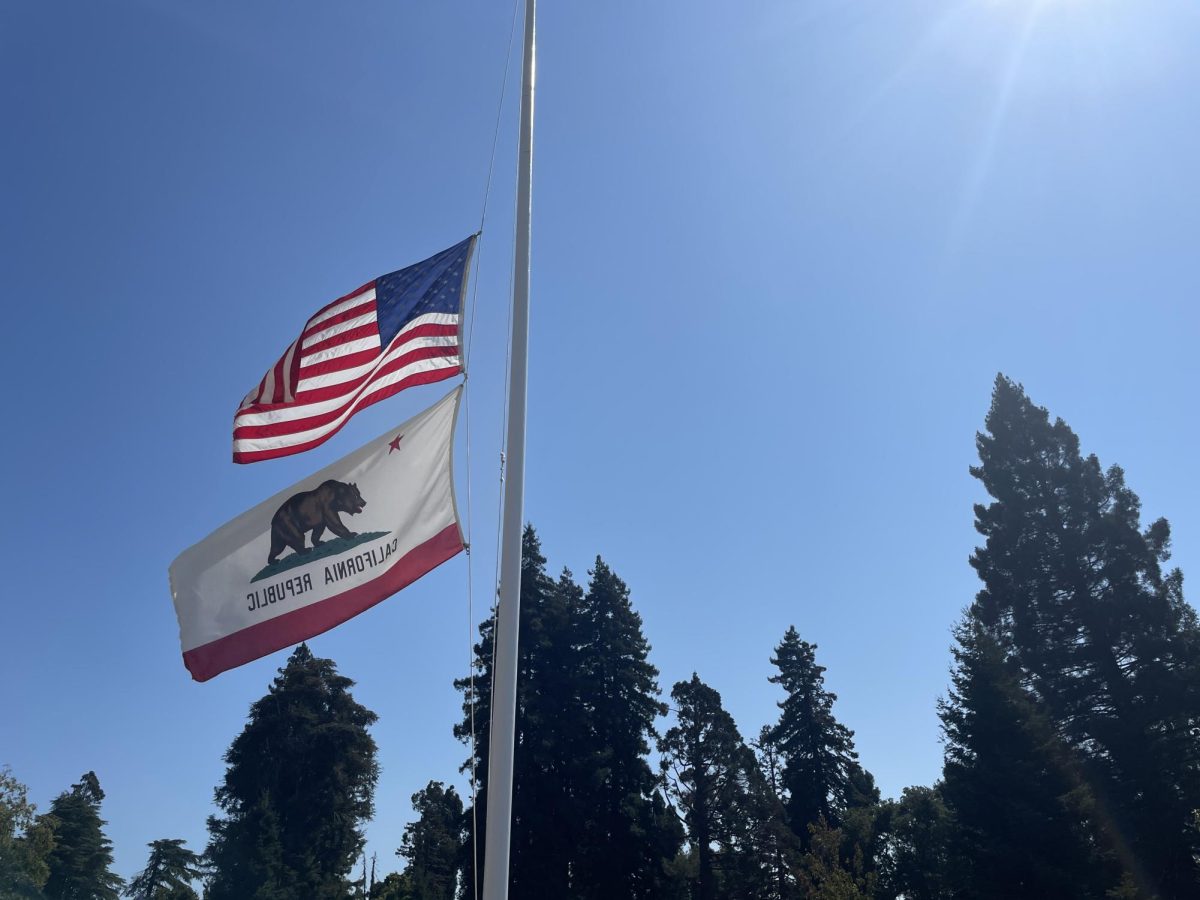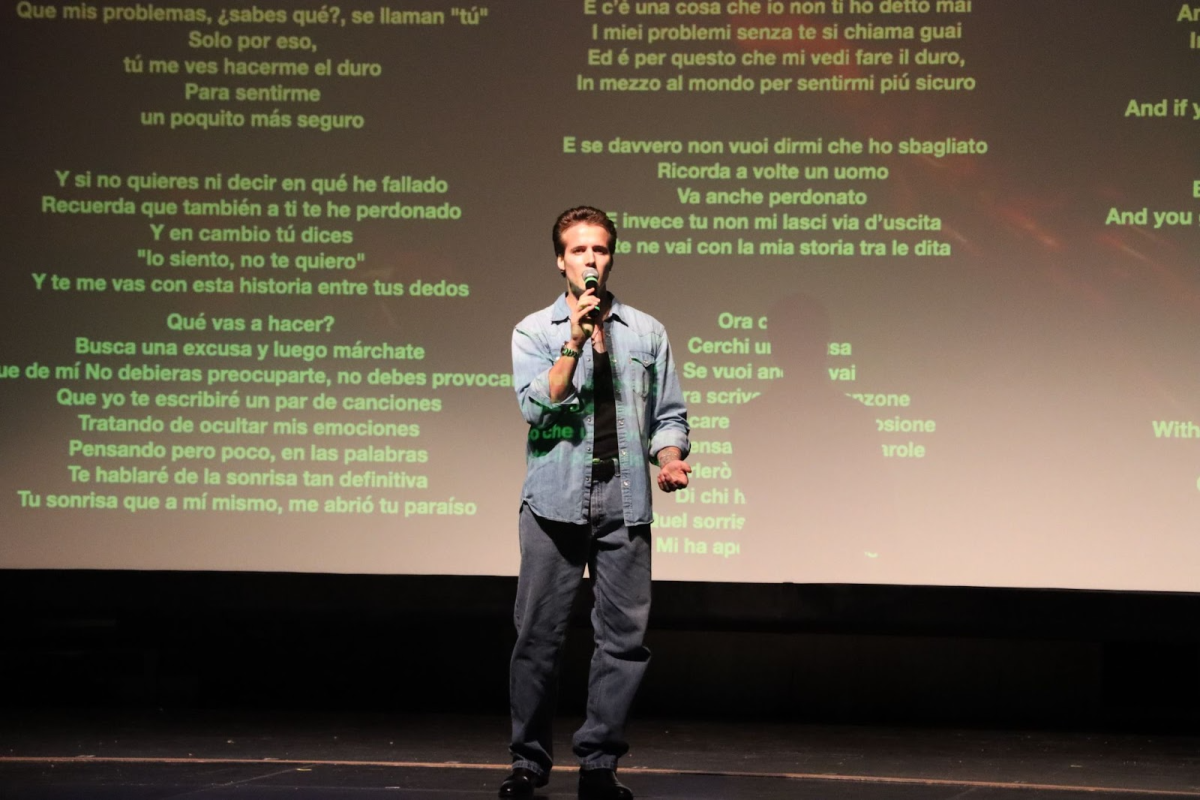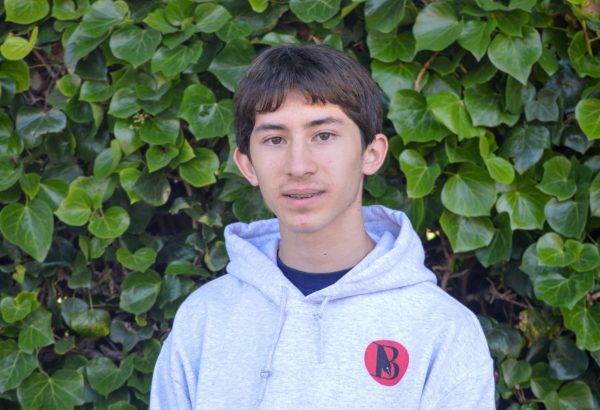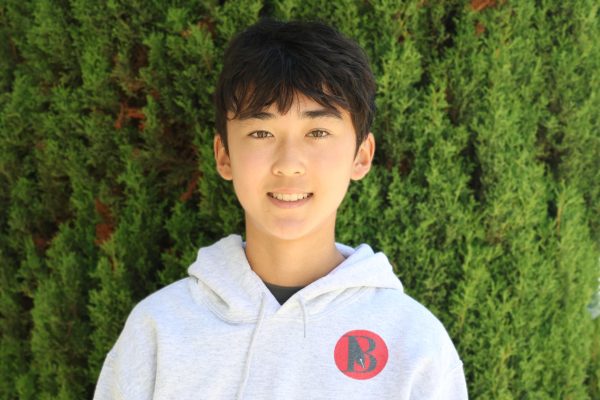On Feb. 21, one month after President Donald Trump’s executive order formalizing the Department of Government Efficiency (DOGE), Elon Musk walked onstage at a rally waving a chainsaw. It was a striking analogue for DOGE, whose mission goal is to cut government spending deemed “waste, fraud, or abuse,” as put by the official White House directive.
Community members have felt the impact of federal funding cuts both directly and through family and friends. World history teacher Jim Chin, for one, has a friend who formerly worked for the United States Agency of International Development (USAID), one of DOGE’s first targets. USAID gave foreign aid — money, food, and medicine — to at least 50 countries worldwide, which accounted for 0.3% of the federal budget in 2024. On Feb. 3, its government offices were blocked, and most of Chin’s friend’s team was notified of their firing. DOGE went on to sever 90% of USAID’s international contracts and fire an even higher proportion of its former 10,000 employees.
“It’s really rough for my friend who wanted to spend his life doing public service, and then got fired,” Chin said.
USAID also works to combat disease in foreign countries through programs such as the 2003 President’s Emergency Plan for AIDS Relief (PEPFAR), and other pipelines supplying affordable, first-rate medication to those in need. PEPFAR has saved an estimated 25 million lives since its inception in 2003, according to the State Department, and its reduction may have serious consequences for countries that benefit from foreign aid. The Africa Centres for Disease Control and Prevention, for instance, predicts that these cuts may lead to an additional 2-4 million deaths annually.
“My blood boils when Elon Musk and DOGE label that as a waste,” Chin said. “You’re telling me a human life is not worth 12 cents a day?”
Chin also has an immunocompromised relative who is now unable to participate in clinical trials because of cuts to the National Institutes of Health (NIH). The NIH is the world’s largest source of funding for biomedical research, accounting for an annual $47 billion dollars spread across 60,000 grants, and around 1% of the US federal budget. An analysis from Nature found that most of the grants cut so far have involved HIV/AIDS, safety for LGBTQ+ and transgender people, and COVID vaccine hesitancy.
Nisha Acharya, an ophthalmologist at the University of California, San Francisco (UCSF), was one of many researchers whose work was considered “against agency priorities.” Her team was investigating the safety of giving shingles vaccines to previously infected patients, and they had been awarded a five-year NIH grant totalling over $3 million. On March 10, she was notified via email that her funding had been abruptly terminated because of the study’s focus on “vaccine hesitancy.”
“It would never happen that you would have a grant cut overnight like this [with] no notice. There’s no precedent,” Acharya said.
The abstract to Acharya’s study included a portion about “hesitancy among cornea specialists to recommend RZV [recombinant zoster vaccine]” due to its potential health concerns, but her work is unrelated to public attitudes on vaccines.
“[It takes] years to get to this stage [and] be able to do this kind of work. To have it be shut down because of a computer program that doesn’t even understand what you’re doing, or [because] nobody looks at your papers or actually reads what the sentences mean, is really disheartening,” Acharya said.
Acharya also feels for her researchers and the younger generations hit by these changes. Chin likewise worries that this behavior could discourage high school students from going into public service or otherwise pursuing interests that have been shut down by the likes of DOGE.
“What message does [this] send to high school students? It’s like, ‘Hey, it kind of doesn’t matter if you want to devote your life to public service. Hey, it kind of doesn’t matter if you believe in the rules of law and right, [of] following democratic norms,’” Chin said. “To add on top of that, there’s the idea that, ‘it doesn’t matter if I’m an expert, because some guy with money will just overrule what I propose.’”
Precedent isn’t the only way in which funding cuts are affecting students. On March 20, Trump signed an executive order to dismantle the Department of Education. Although there is uncertainty over how exactly the department will be altered, layoffs have already occurred, and funding cuts are possible, according to Ian Bain, the San Mateo County Office of Education Executive Director of Strategy and Communications.
One of the department’s responsibilities is ensuring equality for students. It funds the Individuals with Disabilities Education Act (IDEA), a federal program that supports special education for students with disabilities, and channels millions of dollars to programs such as Title I, which supports students from low socioeconomic backgrounds and multilingual learners.
“The impact isn’t completely clear in terms of what local schools will lose in terms of funding. The number I’ve heard is about 10% of funding. But I’m also hearing that there is an effort in Washington to ensure that that money goes straight to the states. So it could be that there’s no financial impact,” Bain said.
According to Bain, federal funding makes up around 10% of the funding for San Mateo Union High School District (SMUHSD) schools. However, he is uncertain about how much of that may be cut. SMUHSD Superintendent Randall Booker said that it would be difficult to supplement any lost federal funds. Outside of funding, curriculum changes could be enforced by the federal government.
“Federal Department of Education funds are allocated based on compliance with federal law and administration policy… I could maybe assume [it’s trying to say that] if you don’t do some of the things that President Trump and his administration is outlining, you may lose that money. But I don’t know that for sure,” Booker said.
Students applying for financial aid may also struggle to receive funds due to changes to the department, according to Principal Jen Fong.
“I have a high school senior, she will be applying for a federal student loan, I don’t know who’s going to administer that,” Fong said.
As of right now, Booker is unclear on when any changes could happen — only time will tell how the community, country, and world will be impacted by these administrative actions.












































